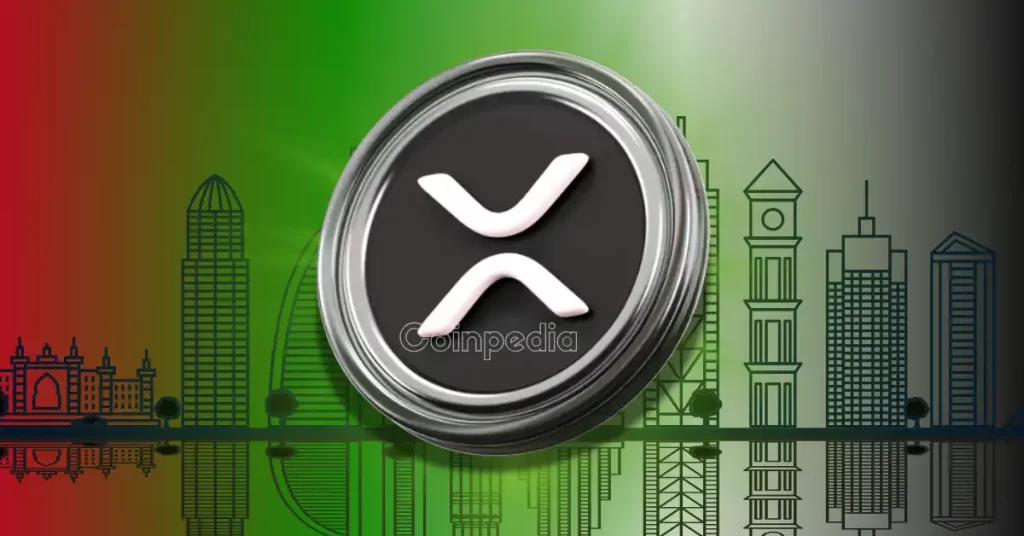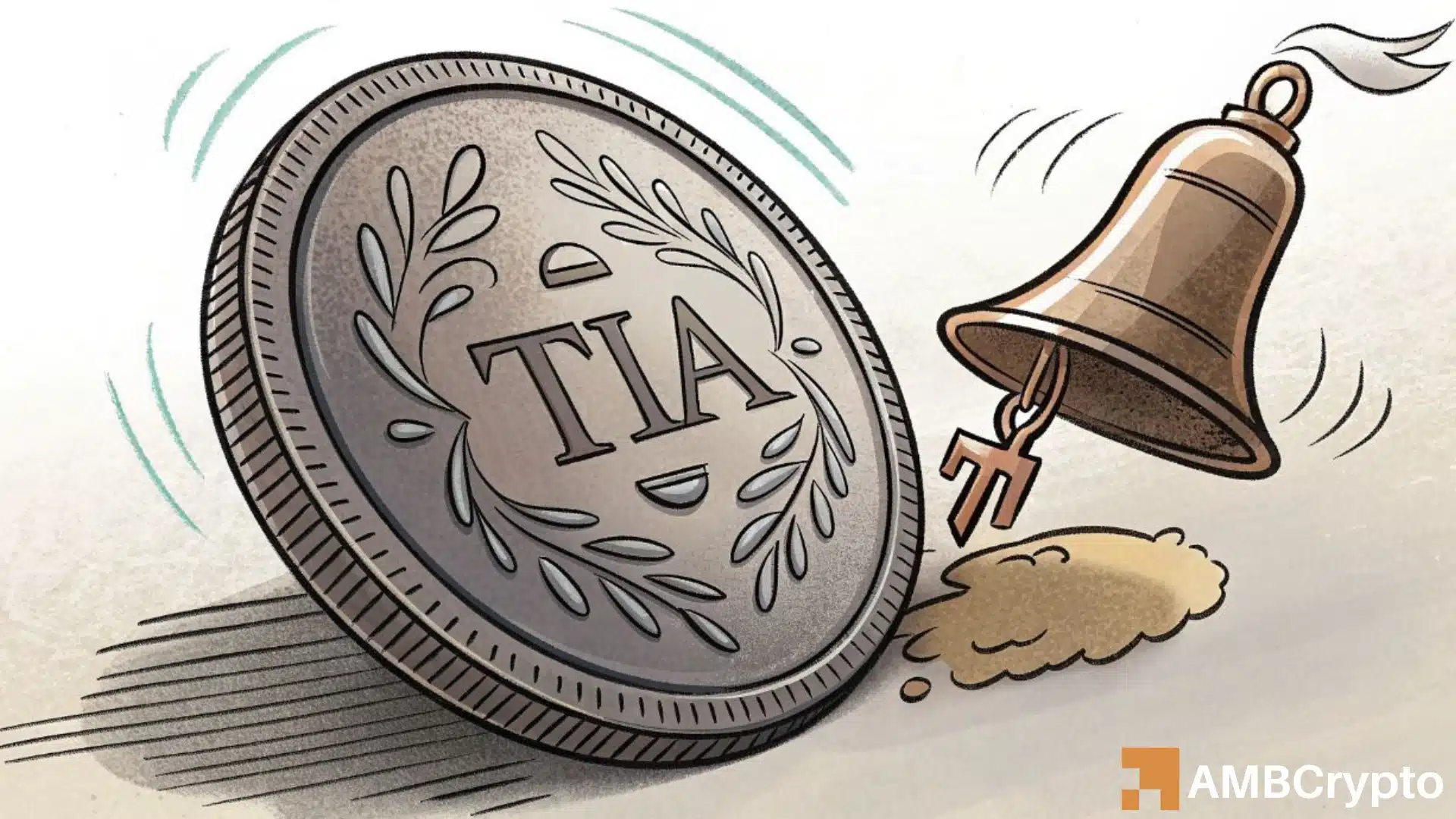
The post What Is Blockchain Technology? How Does Blockchain Work? appeared first on Coinpedia - Fintech & Cryptocurreny News Media| Crypto Guide
Find out in this article how blockchain works and the potential applications of this game-changing technology!
What Is Blockchain Technology?
Blockchain technology is a relatively new concept that has the potential to revolutionise the way we store and manage data.
At its core, blockchain is a distributed database that allows for secure, transparent and tamper-proof storage of data. Rather than having a central authority manage the database, like a traditional bank or government, blockchain technology relies on a peer-to-peer network of computers to validate and store transactions.
Each transaction that takes place on the blockchain is verified by multiple computers on the network. Once verified, the transaction is then stored in a block of data that is linked to all previous transactions – forming a chain. This chain of blocks is then distributed across the entire network, ensuring that everyone has a copy of the latest transaction history.
This decentralised approach to managing data has many potential benefits. For one, it makes data much more secure since there is no central point of failure that hackers can target. Additionally, it increases transparency since all transactions are publically available on the blockchain. Finally, it also enables near-instantaneous settlements since there is no need for a third-party intermediary to process payments.
How Does Blockchain Work?
Blockchain technology is a system that allows for secure, decentralised peer-to-peer transactions. This makes it an ideal platform for conducting financial transactions, as well as other types of sensitive exchanges. Each transaction is verified by multiple computers on the network, and then stored in a block. Once a block is full, it is added to the chain, creating an immutable record of all transactions.
One of the key advantages of blockchain technology is that it eliminates the need for a third-party intermediary. In traditional financial transactions, there is always a middleman (such as a bank or credit card company) who takes on the role of verifying and processing the transaction. With blockchain, this verification and processing is done by the network of computers that make up the blockchain. This not only reduces costs, but also speeds up transaction times.
Another advantage of blockchain is that it is highly secure. Because each transaction is verified by multiple computers on the network, it would be virtually impossible to hack into the system and alter or delete any records. Additionally, all data is stored in a decentralised manner, meaning that no single point of failure exists. This makes blockchain
The Benefits Of Blockchain Technology
There are many potential benefits of blockchain technology.
1. Increased security: Blockchain technology is extremely secure. Because there is no central point of control, it is much more difficult for hackers to target. Additionally, all data stored on a blockchain is encrypted, further enhancing security.
2. Enhanced transparency: With blockchain technology, all transactions are transparent and viewable by anyone with access to the network. This could potentially increase transparency and reduce corruption in many industries.
3. Faster transactions: Blockchain technology has the potential to greatly reduce the time it takes to settle transactions. This is due to the fact that there is no need for a third-party intermediary (such as a bank) to validate the transaction.
4. Reduced costs: Because blockchain technology has the potential to streamline many processes, it could also lead to cost savings for businesses and consumers alike.
5. Increased efficiency: Blockchain technology has the potential to greatly increase efficiency by automating many processes that are currently manual or require intermediaries.
While these are just some of the potential benefits of blockchain technology, it is important to note that this is still a relatively new field
The Future Of Blockchain Technology
With its potential to revolutionise how we interact with the digital world, blockchain is poised to change the way we do business, govern, and even socialise. Here are some of the ways blockchain technology might shape the future:
1. Smarter contracts and transactions. Blockchain could make contract law and transactions much more efficient by automating many processes and eliminating the need for paper documents. This would not only save time and money, but also reduce the chances for errors and disputes.
2. Improved data security. One of the most attractive features of blockchain is its ability to provide secure, tamper-proof data storage. This could be used to store everything from medical records and birth certificates to property titles and voting results.
3. More transparent governance. Blockchain’s decentralised nature could make the government more accountable to citizens by providing a transparent record of all transactions and votes. This could help reduce corruption and increase trust in government institutions.
4. Enhanced social interactions. Blockchain-based social networks could improve communication by allowing users to share verified information with each other without fear of censorship or fraud. This could lead to a more open and trusting society.
Finally, The Implications Of Blockchain Technology
Blockchain technology could potentially eliminate the need for middlemen such as banks and brokers. It could also make it easier to track provenance and ownership, making it ideal for use in supply chains. Blockchain could also be used to create smart contracts that automatically execute when certain conditions are met. The possibilities are endless and the implications of this technology are far-reaching.
The potential implications of this technology are far-reaching and could revolutionise many industries. For example, in the financial sector, blockchain could streamline processes and reduce costs by eliminating the need for intermediaries. In the supply chain, it could improve traceability and visibility, helping to ensure quality control. And in the healthcare sector, it could be used to securely store and share patient data. The possibilities are endless – and it’s exciting to see what further applications of blockchain technology will be developed in the future.
Blockchain technology has a number of potential implications for businesses and individuals. One potential implication is the elimination of the need for intermediaries in financial transactions. With blockchain, transactions can be verified and completed directly between the parties involved, without the need for a bank or other third party. This could lead to lower transaction costs and faster processing times. Another potential implication is increased security and transparency. With blockchain, transaction data is stored in a decentralised network, making it more difficult to tamper with or hack.
Disclaimer: This is a guest post. Coinpedia does not endorse or is responsible for any content, accuracy, quality, advertising, products, or other materials on this page. Readers should do their own research before taking any actions related to the company.

 2 years ago
232
2 years ago
232













 English (US) ·
English (US) ·